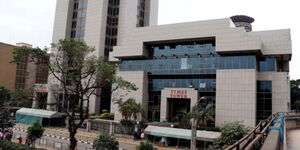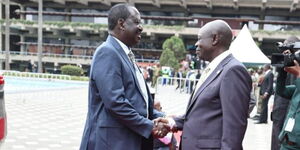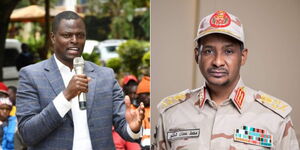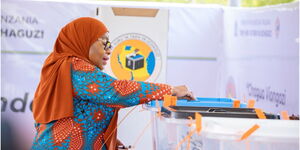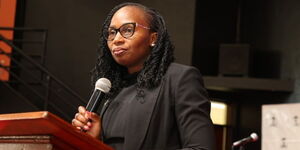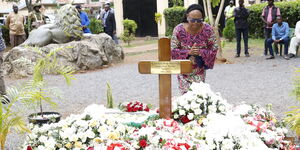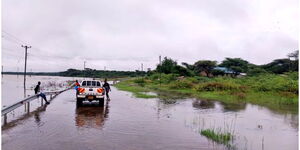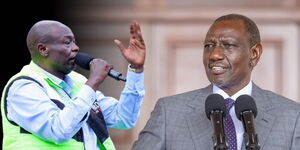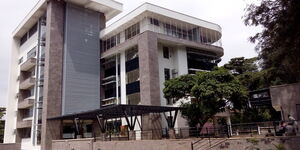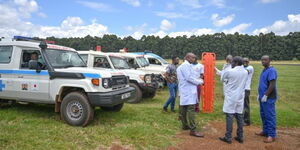Former ICT Cabinet Secretary Margaret Nyambura Ndung’u has landed a new job as the Senior Researcher & Digital Policy Specialist to the Digital Public Infrastructure (DPI)Safeguards Strategic Advisory Board at the United Nations.
The job comes months after the former CS rejected an appointment by President William Ruto as Kenya's High Commissioner to Ghana, citing personal and compelling family matters.
Her new role was announced by the United Nations Development Programme (UNDP) in a statement on Thursday, July 31, with the organisation expressing its excitement at welcoming her to the team.
“Thrilled to introduce Dr Margaret Nyambura Ndung’u, Senior Researcher & Digital Policy Specialist to the DPI Safeguards Strategic Advisory Board,” UNDP's statement read in part.
“Margaret provides strategic advice on the adoption, implementation, and long-term evolution of the Universal DPI Safeguards Framework,” the statement continued.
Ndung’u had been scheduled to appear before the Departmental Committee on Defence, Intelligence and Foreign Relations for vetting on January 10, but instead sent a letter officially announcing her decision to decline Ruto's appointment.
“Pursuant to Section 16 of the Public Appointments (Parliamentary Approval) Act No. 3 of 2011, I wish to inform you that I will not appear before the said committee at the time and venue specified for the approval hearing,” her letter read in part.
In her new role, the former CS will provide strategic guidance on the adoption, implementation, and long-term development of the Universal DPI Safeguards Framework.
In her acceptance speech, the former CS emphasised her commitment to deliver fully in the role.
“My aim is to play a central role in large-scale dissemination efforts, raise awareness, and drive broad engagement to enhance understanding of the Framework's significance and its broader impact using my varied networks at the national, continental, and international level,” she said.
UNDP is the United Nations’ global development network, operating in about 170 countries and territories, helping to achieve the eradication of poverty and the reduction of inequalities and exclusion.
The programme supports countries in developing policies, leadership skills, partnership capabilities, institutional capacity, and resilience in order to sustain development outcomes.

